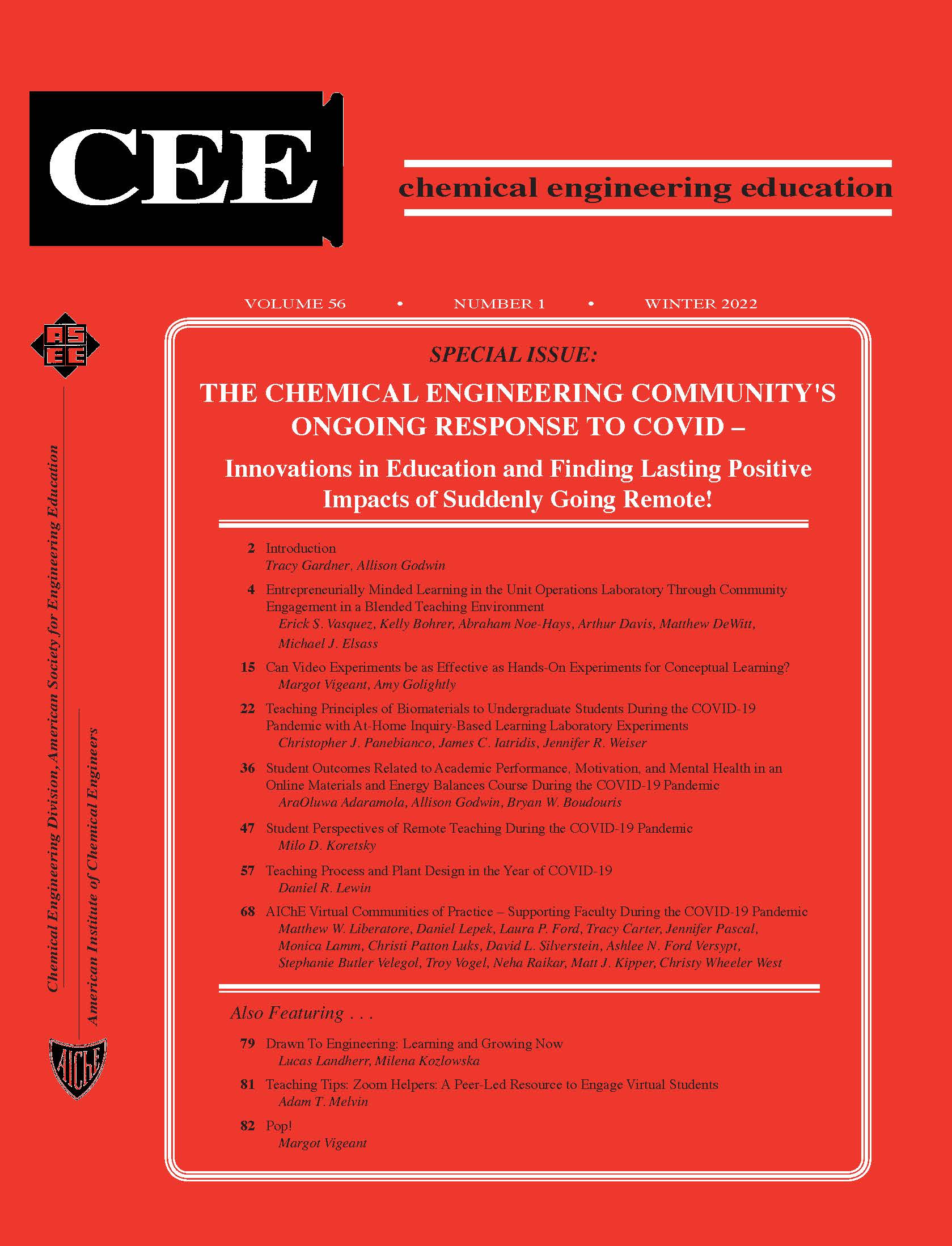Can Video Experiments be as Effective as Hands-on Experiments for Conceptual Learning?
DOI:
https://doi.org/10.18260/2-1-370.660-125205%20Abstract
In 2019 and 2020, third-year chemical engineering majors completed a concept inventory at the beginning and end of the semester in their thermodynamics course. Midway through spring semester of 2020, the course switched to emergency remote instruction, replacing hands-on inquiry-based laboratory activities (IBLAs) with short videos. Analysis of learning gains on the concept inventory demonstrated that while both groups made significant gains in their learning, the 2019 cohort showed larger gains than the 2020 cohort.


